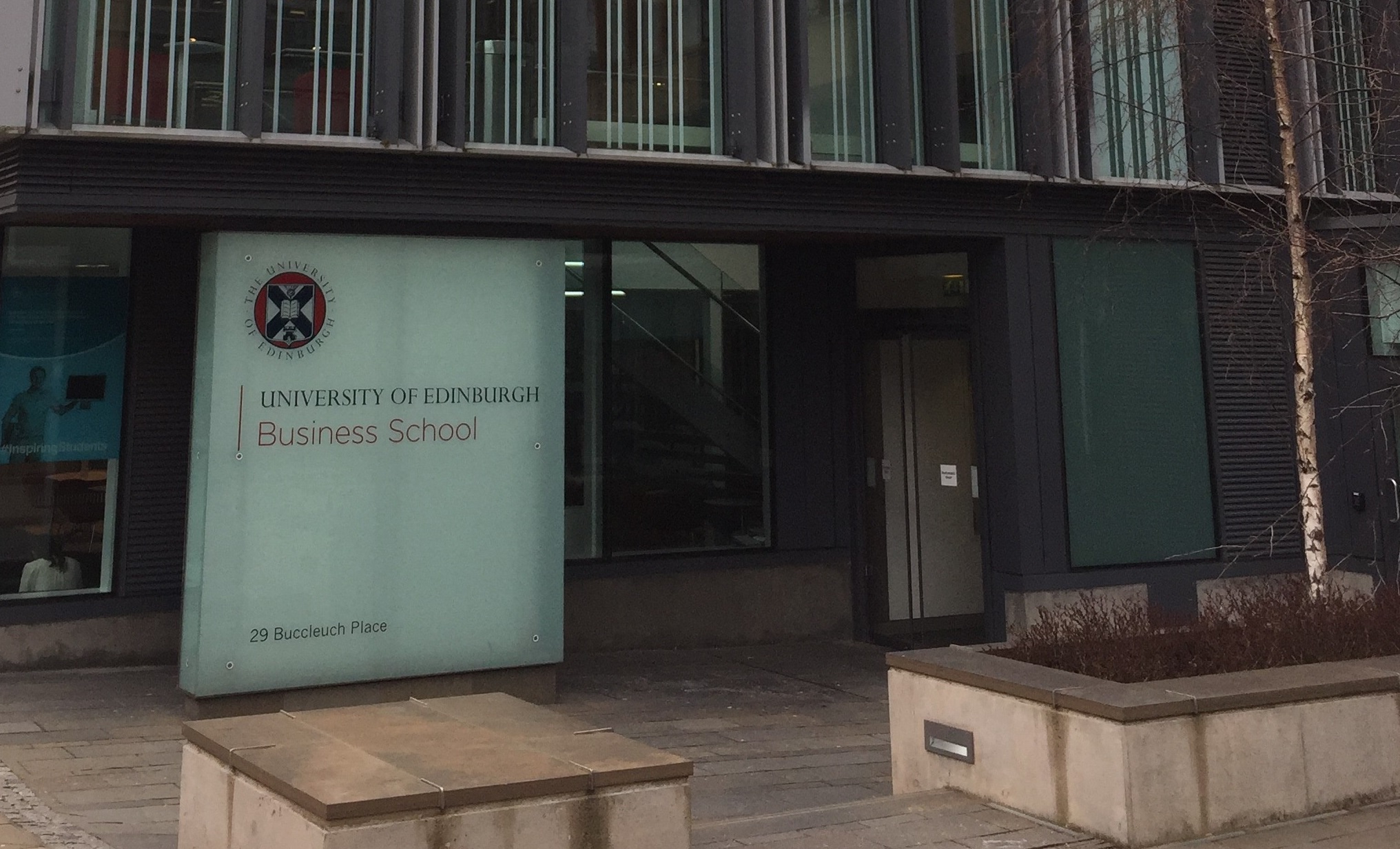Employment Mediation lecture to Edinburgh Business School
Lecture on Employment Mediation provided by Paul Kirkwood to Edinburgh Business School on 23 March 2018.
I was delighted to be invited by Dr Sara Chaudry Lecturer and by Chris Phillips Solicitor and now Partner at Thorntons Solicitors to provide a talk about Employment Mediation to the course that Dr Chaudry lectures at Edinburgh Business School, an MSc in ‘Human Resource Management’ for the module ‘Managing Employment Relations’.
Models of mediation
The talk took place at Edinburgh Business School on Friday, 23 March 2018 and involved approximately 40 postgraduate, mainly international, students. It included a whistle-stop tour of the theory of four different models of mediation used throughout the world and as such involved international comparisons re theories of mediation and of law, including reference to different national statutory regimes. It looked at models of mediation where great stress is placed on the need for mediators to be strictly neutral and impartial right across the spectrum to models where mediators are more or less unconcerned with those issues.
Actual Practice of Employers
I considered the Conflict Management at Work Report by the CIPD from 2015, which considered that most employers in the UK still use Grievance and Disciplinary procedure to sort out internal workplace disputes between employees rather than consider outside mediation-although notwithstanding that, there was a greater willingness to consider using mediation in the public sector as compared to the private sector. I noted the significant disparity in cost-Disciplinary Procedure £5000; Grievance Procedure £2750 and Mediation £2400 (source 2015 CIPD report).
I contrasted the very significant legal cost for both sides of going to Tribunal-and considered that Mediation (not just Judicial Mediation) could be used as a much cheaper way of resolving disputes privately, without public embarrassment, where parties wished to agree a parting of ways, using Compromise Agreements and the provision of decent References.
How Mediation Works
I explained how mediation can actually improve workplace employee relationships by the use of an external mediator who is independent of the employer. That the mediator was able to act effectively as a peacekeeping referee allowing a genuine exchange of dialogue between two people who are upset with each other, in a confidential and safe environment. That this process, which the mediator uses her skill to manage, enables both parties to really hear each other, and understand the other’s perspective, as well as their own. That such a process of genuine, engaged, dialogue which is informal can enable rapprochement, where parties craft their own solutions to their disputes.
I contrasted Mediation with the formal approach of either dealing with things through grievance and disciplinary procedures, which lead to the alienation of people from each other and which do not resolve the underlying personality disputes; or worse the formal approach of the Tribunal where people instruct solicitors, both sides “retreat to the trenches”, dialogue between the people who are in dispute stops and, in particular, individual applicants lose control of ‘their’ conflict and cede it to legal representatives almost completely.
Question-And-Answer Session
At the end of the talk there was a Q&A session-it was gratifying to be asked a lot of questions-clearly the audience had been listening and had grasped the key concepts-despite my strong Scottish accent! One American student, in particular, was exercised by concerns about the failure of Transformative Mediators to intervene in power imbalance situations, where a lack of legal knowledge for one party could lead them to reaching an uninformed resolution which could be unfair.
A very interesting and lively session to end the talk on!
Posted by Paul Kirkwood, a Commercial Mediator who has also practised as a litigation solicitor for 24 years. He is a director of MNCRS (www.mncrs.co.uk) Mediation, Negotiation and Conflict Resolution Services.
